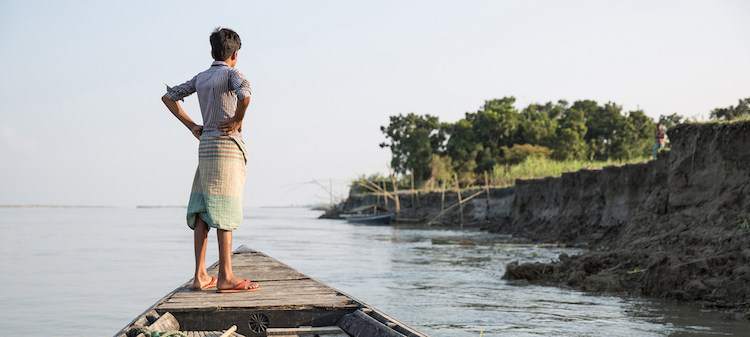
By Reinhard Jacobsen
BRUSSELS (ACP-IDN) – A new study finds that the 79-nation African, Caribbean, and Pacific (ACP) Group of States can boost climate action with technical and financial support amounting to a minimum of USD 2,317 billion. Capacity building, an important aspect of efforts to halt climate catastrophe, is expected to draw considerable attention at the forthcoming United Nations Climate Change Conference (COP24) in Katowice, Poland.
The urgency of climate action is underlined also by the new report released by the United Nations Environment Programme (UNEP). It shows that global carbon dioxide (CO2) emissions rose again during 2017 after a three-year break, highlighting the imperative for countries to deliver on the historic Paris Agreement to keep global warming to below 2 degrees Celsius above pre-industrial levels.
On a different note, heads of 50 major global businesses representing more than USD 1.5 trillion in total revenue published on November 29 an open letter to world government leaders urging greater collaboration to accelerate outcomes in the race against climate change.
The study titled ‘Climate Ambitions: An analysis of nationally determined contributions (NDCs) in the ACP Group of States’, one of the leading intergovernmental groups of developing countries, was released on November 29. It spells out the needs of the 79 ACP countries.
Of these, some 59 ACP countries have outlined financial support needs in their Nationally Determined Contributions (NDCs), worth a total USD 2,317 billion. Of this amount, African countries account for 97 percent USD 2,258 billion), while the Caribbean and Pacific regions account for 2.5% (USD 58 billion) and 0.06% (USD 1.5 billion) respectively. This figure is expected to hike up as countries detail their financial needs or increase their ambitions., while
The study finds that 68 out of 79 ACP states (86 percent) include some form of conditionality in their mitigation plans, meaning that – if conditions on support, including finance, capacity building and technology transfer are met – the countries could work towards promoting the necessary sector-wide low carbon options, while furthering efforts to adapt to the adverse impacts of climate change.
“The need for urgent and adequate action on climate change has been highlighted by the recent Special report on 1.5°C of the UN’s Intergovernmental Panel on Climate Change (IPCC),” said ACP Secretary General Dr Patrick I Gomes.
“The ACP Group are among the world’s most vulnerable countries to climate change and they’re keen to do all that they can to face this colossal challenge,” he said.
These countries and regions have contributed less than most others to climate change, but they are also more vulnerable to changing weather patterns, rising sea levels, and extreme weather events. They include small island developing states, landlocked countries, and less developed countries.
Under the 2015 Paris Agreement, countries agreed to prepare NDCs, which they then revise every five years at most, increasing their ambitions with each revision. In this way, the world gradually ramps up its action against climate change.
“By identifying the opportunities, gaps and patterns, this report will help ACP States take their NDCs to the next level,” said Dr Gomes. “I urge the international community to support those climate ambitions,” he said.
2018 is an important year for climate action. In December, the international community is set to agree rules on implementation of the Paris Agreement and – for the first time – to review the world’s collective action (as part of the Talanoa Dialogue).
These two steps mark the culmination of key processes begun under the Paris Agreement, reinforcing the importance of next month’s 24th Conference of the Parties (COP24) to the United Nations Framework Convention on Climate Change (UNFCCC). [IDN-InDepthNews – 29 November 2018]
Photo: A boy watches the shore from a boat near Sirajganj, a community affected by severe erosion that has left many displaced. Sirajganj, Bangladesh. October 2016. Credit: IOM/Amanda Nero.
This report is part of a joint project of the Secretariat of the ACP Group of States and IDN, flagship agency of the International Press Syndicate.
facebook.com/IDN.GoingDeeper – twitter.com/acp_idn











